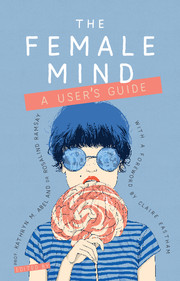Book contents
- Frontmatter
- Acknowledgements
- Contents
- Foreword
- Introduction: being female
- Part I Women in perspective
- Part II Women and society
- 5 Poverty, exclusion, debt and women
- 6 Arranged marriage
- 7 Girls at risk
- 8 Domestic abuse
- 9 Women and the criminal justice system
- Part III Women and their environment
- Part IV Women and specific disorders
- Part V Women and treatment
- Contributors
- Index
8 - Domestic abuse
from Part II - Women and society
Published online by Cambridge University Press: 02 January 2018
- Frontmatter
- Acknowledgements
- Contents
- Foreword
- Introduction: being female
- Part I Women in perspective
- Part II Women and society
- 5 Poverty, exclusion, debt and women
- 6 Arranged marriage
- 7 Girls at risk
- 8 Domestic abuse
- 9 Women and the criminal justice system
- Part III Women and their environment
- Part IV Women and specific disorders
- Part V Women and treatment
- Contributors
- Index
Summary
Kim's story
‘My mother was always critical of me and my father left when I was a child. When John and I started going out, he was attentive and I felt I had found someone who cared for me at last. Looking back, his interested questions always turned into an interrogation about who had talked to or texted me, especially men. He became jealous and possessive, even though I was totally in love. Things got worse when I became pregnant. When I didn't feel like sex, he accused me of having an affair and called me a whore. Basically, I often had sex to keep the peace, even when I didn't feel well. I really didn't like oral sex, but as my belly got bigger, John insisted it was my job to give him pleasure. It really hurt a few times. I got more and more depressed, and John got angrier. I felt too ashamed to ask anyone about it, and I could never have told my mother something like that. Even if it was embarrassing, it was a relief when my midwife asked me if things were okay between me and my partner, and if we had any sexual problems during pregnancy. When I told her, she explained that it was sexual abuse if John did not take ‘no’ for an answer when I did not really want to have sex. She referred me to a Relate counsellor and that really helped. The counsellor saw us separately at first, and thinking about my rights and that I was not to blame really helped my self-confidence. I realised that I was a good person and I would rather be on my own than be put down or forced into things, by Mum or John. I left John for a while and that gave us both some breathing space. When Gemma was born, John promised that he would respect me and protect us both. It's good to have a family at last.’
What is domestic abuse?
Domestic abuse (or domestic violence) is a pattern of coercive and controlling behaviour by a partner or family member that can include physical violence, sexual violence, emotional/ psychological abuse (such as humiliation) and financial exploitation.
- Type
- Chapter
- Information
- The Female MindUser's Guide, pp. 51 - 56Publisher: Royal College of PsychiatristsPrint publication year: 2017

